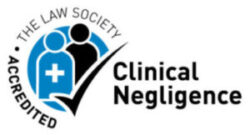A new ‘Learning from Mistakes League’ ranks NHS trusts in England for their ability to learn from mistakes, as part of several changes designed to improve patient safety, tackle the “cover-up” culture within the NHS and help reduce the amount of clinical negligence claims each year.
Learning from Mistakes League
The “Learning from Mistakes League” is the first annual data collection of its kind and is designed to help identify the levels of openness and transparency within NHS provider organisations. The League rates 120 health trusts as either “outstanding” or “good”, 78 as having “significant issues” and 32 as having a “poor reporting culture”. So out of 230 NHS trusts across the country rated for their openness and transparency when it comes to clinical errors, only 52.17% are deemed to be at an acceptable level. The latest NHS league table reveals that Northumbria Healthcare NHS Foundation Trust are the best at learning from mistakes, while East Sussex Healthcare NHS Trust is ranked at the bottom.
Protection for Staff Who ‘Admit Mistakes’
Along with the new league table, Health Secretary Jeremey Hunt has proposed a range of other measures designed to help improve the NHS, including a new independent Healthcare Safety Investigation Branch where staff can report concerns without bringing them into conflict with their employer; legal protection for medical staff who admit mistakes; credit given at professional tribunals to NHS staff who are “honest about mistakes and apologise”; and plans for expert medical examiners to conduct a review into every death.
A New Era of Openness?
Mr Hunt believes the changes will herald a “new era of openness”, encouraging medical professionals and NHS trusts to admit to their mistakes and, more importantly, learn from them. He said health services must “unshackle ourselves from a quick-fix blame culture and acknowledge that sometimes bad mistakes can be made by good people”. But will the proposed changes really help to improve the NHS? A recent report by Dame Julie Mellor revealed systematic cover-ups by the NHS in dealing with instances of sub-standard patient care, so there is clearly a long way to go before full transparency is achieved.
Mixed Opinions on New NHS Improvement Measures
Peter Walsh, chief executive of patient safety charity Action Against Medical Accidents, welcomed the proposed initiatives but said he remained concerned about the “woeful inconsistency and often inadequate quality of NHS investigations into serious incidents” and cautioned that the new measures would not automatically correct the faults in the system of reporting within the NHS.
Mr Walsh also said there was “nothing” in Mr Hunt’s announcement to reassure his organisation that urgent action would be taken to address the quality of local investigations.
James Titcombe, whose son Joshua died due to failures in his care at the hospital where he was born, told the BBC that he believes the measures are “major steps that will help move the NHS towards the kind of true learning culture that other high-risk industries take for granted”.
Labour’s shadow health secretary Heidi Alexander, on the other hand, said her party supported “any measures that will improve safety”, but added: “On Jeremy Hunt’s watch, hospitals are overcrowded, understaffed and facing financial crisis.” She has a point. A lack of weekend hospital staff, increasing GP workloads and the failure to meet A&E waiting time targets means that the NHS appears to be struggling to provide the basic level of care that patients expect and deserve.
‘Learning from Mistakes’ League Driven by Staff
The “Learning from Mistakes League” is based on feedback from NHS trust staff about their freedom to speak when mistakes are made and things go wrong. The annual staff survey collects and measures a variety of data, including fairness and effectiveness of procedures for reporting incidents; staff confidence in reporting unsafe practice; and how confident staff feel in contributing to improvements.
Our View on the ‘Learning from Mistakes League’
While admirable in principle, the poor performance of many NHS trusts highlights the current reluctance of many health organisations to admit their mistakes. A shift towards greater transparency within the NHS could lead to earlier admissions of liability, which would help victims of surgical errors, late diagnosis of cancer and cancer misdiagnosis move on with their lives sooner as clinical negligence compensation claims could be settled faster.





